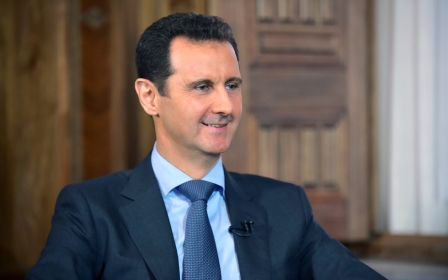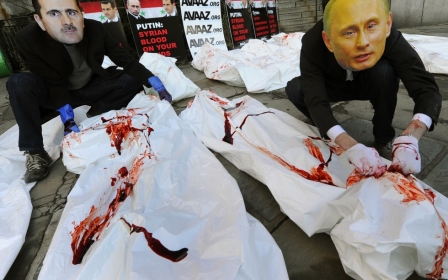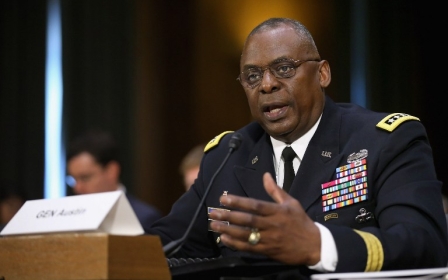Kerry: Assad must go, but when is negotiable

US Secretary of State John Kerry said Saturday that Syrian President Bashar al-Assad must step down, but not necessarily immediately upon reaching a settlement to end the country's civil war.
Speaking after talks in London with British Foreign Secretary Philip Hammond, Kerry said he was prepared to negotiate to achieve a solution but asked whether Assad was.
"For the last year and a half we have said that Assad has to go but how long, what the modality is...it doesn't have to be on day one or month one or whatever," Kerry told reporters.
"There's a process by which all the parties have to come together and reach an understanding of how this can be achieved."
He welcomed Russia focusing its efforts against the Islamic State group (IS) in Syria.
"We welcome that and we are prepared to try to find the ways to most rapidly and most effectively eliminate ISIL," he said, using an acronym for the Islamic State.
"We need to get to the negotiation. That's what we are looking for and we hope Russia, Iran and other countries with influence will help to bring about that because that is what's preventing this crisis from ending," he added.
"We're prepared to negotiate. Is Assad prepared to negotiate, really negotiate? Is Russia prepared to bring him to the table and actually find the solution to this violence?"
"Right now Assad has refused to have a serious discussion and Russia has refused to bring him to the table in order to do that."
Russia and the United States launched military talks on the Syrian conflict on Friday as Moscow increased its build-up of forces in the war-torn country.
The phone conversation between Russian Defence Minister Sergei Shoigu and US Secretary of Defence Ash Carter ended an 18-month freeze in military relations triggered by NATO anger over Moscow's role in the Ukraine crisis.
Hammond said that as a result of Moscow's involvement, "the situation in Syria is becoming more complicated."
"We need to discuss this as part of a much bigger problem: the migration pressures, the humanitarian crisis in Syria as well as the need to defeat ISIL."
He said Assad's presence was "a magnet for foreign fighters to come to the region".
New MEE newsletter: Jerusalem Dispatch
Sign up to get the latest insights and analysis on Israel-Palestine, alongside Turkey Unpacked and other MEE newsletters
Middle East Eye delivers independent and unrivalled coverage and analysis of the Middle East, North Africa and beyond. To learn more about republishing this content and the associated fees, please fill out this form. More about MEE can be found here.




